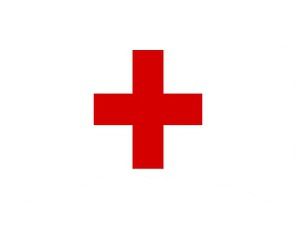 There was a time when all your phone did was make calls, but it today’s world it is so much more. Smartphones let text, send email, surf the web, play games and even create documents. These small handheld computers have replaced our old, basic phones and have slowly woven themselves into almost every aspect of our lives. Now, smartphones are making the move into our health care as well. This is a feature that has been a long time coming, and with the latest Healthkit from Apple and other innovations, smartphones are now poised to be a full health device as well.
There was a time when all your phone did was make calls, but it today’s world it is so much more. Smartphones let text, send email, surf the web, play games and even create documents. These small handheld computers have replaced our old, basic phones and have slowly woven themselves into almost every aspect of our lives. Now, smartphones are making the move into our health care as well. This is a feature that has been a long time coming, and with the latest Healthkit from Apple and other innovations, smartphones are now poised to be a full health device as well.
Growing Features
Health related apps began rather humbly with simple diet trackers that allowed us to track what we ate and the calorie content we at consumed each meal. Next came the addition of pedometer apps that tracked the number of steps we took each day. Today, smartphones and wearable technology are able to actively monitor much more than just how much we walk each day. The new wave of apps aims at providing us (and maybe even our employers) with a wealth of information about our health; they even have the ability to track our sleep and exercise patterns. This is likely just the beginning as designers everywhere work to create apps that will help us track all aspects of our health.
The Need for Regulation
The question on everyone’s mind now is, how should these apps and, in turn, these devices be regulated? In the past any medical device has been subject to government regulation in order to ensure consumer safety and security. A medical device is defined as any instrument, apparatus, appliance, software, material or other article, whether used alone or in combination, including the software intended by its manufacturer to be used specifically for diagnostic and/or therapeutic purposes and necessary for its proper application, intended by the manufacturer to be used for human beings for the purpose of diagnosing or treatment of a wide range of illnesses or diseases.
With this definition in mind, when does an app become a medical device, or does it at all? As these apps become more and more advanced, gaining abilities only seen in a hospital setting, the answer to this question becomes very important. Consumers are entitled to the protection and privacy in regard to their health already afforded to them when using a medical device, but are apps really medical devices? For some it seems if they perform the function of a medical device they should be regulated as such, while many developers simply state that the apps are a tool to assist consumers and if they should see a doctor if they have any legitimate health concerns.
The Question Must Be Addressed
Regardless of what side of the fence your opinion resides on this issue, it is no doubt one that can’t simply be ignored. Consumers must have guarantees of privacy when it comes to their health, and without regulation many companies and other nefarious individuals could use this health information against consumers and even penalize them if they refuse to share the information.
As the technology surrounding health monitoring improves and is able to record more and more about our physical health when we use our handheld devices, the need for regulation could become even more important. Consumers will demand privacy in all aspects of their health monitoring whether they are talking about their doctor or using the latest app they just downloaded for their smartphone.